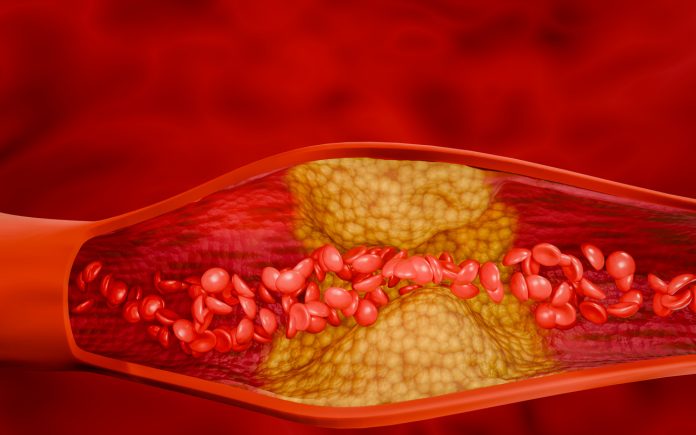Researchers have tested a new scoring system to measure the risk of stroke in patients with narrow arteries due to atherosclerosis
Atherosclerosis is when the blood vessels become narrowed and hardened due to plaque buildup, including in the carotid arteries, which carry blood from the heart to the brain. It is a common condition, particularly affecting those aged 65 and over.
Currently, many patients will have surgery or stenting to prevent strokes resulting from atherosclerosis, yet these interventions carry the risk of causing strokes and other serious complications. A new study by colleagues at UCL, Amsterdam University Medical Centre, and the University of Basel has revealed insight into a safer alternative to surgery.
Carotid Artery Risk (car) score offers new options for atherosclerosis patients
The study, published in The Lancet Neurology, found that using a Carotid Artery Risk (CAR) scoring system can offer a safer alternative, by identifying patients who can be treated with medications and lifestyle changes instead of surgery.
Researchers at UCL and the University of Oxford developed the CAR system.
Senior author, Emeritus Professor Martin Brown (UCL Queen Square Institute of Neurology), said: “While further follow-up and additional trials are needed to confirm these findings, we recommend using the CAR score to identify patients with carotid narrowing who can be managed with optimised medical therapy alone.
“This approach emphasises personal assessment and intensive treatment of vascular risk factors, potentially sparing many patients from the discomfort and risks of carotid surgery or stenting.
“Additionally, this method could lead to substantial cost savings for health services.”
Could optimised medical therapy be the answer?
The researchers evaluated the effectiveness of the CAR score by testing it in a randomised clinical trial involving 428 patients across 30 centres in the UK, Europe and Canada.
All patients had significant atherosclerosis, which was found after it had caused symptoms or after it had caused a minor stroke.
Individuals with symptoms were selected using their CAR score, which accounts for factors such as the percentage of narrowing in the carotid artery and medical history, to determine who had a low to intermediate risk of stroke over the next five years and could be included in the trial. Patients with a high score were not suitable for the trial and were recommended to undergo immediate surgery or stenting.
The trial participants were divided into two groups, with one group receiving optimised medical therapy, which includes a low-cholesterol diet, treatment to lower blood pressure, antithrombotic therapy, and regular checks to adjust the medication as necessary. The other group received both optimised medical treatment and additional surgery or stenting.
The researchers found that in the first two years, patients treated with optimised medical therapy alone had very low rates of recurrent strokes and heart attacks. Those who underwent additional surgery or stenting did not experience significant benefits, considering the associated risks of these procedures.
Dr Louise Flanagan, Head of Research at the Stroke Association, said: “Atherosclerosis is a common condition and a significant risk factor for heart disease and stroke. Whilst medical therapy is the first line of treatment, many of those who have medical therapy then need surgery or stenting, which can lead to complications, including an increased risk of stroke and other unpleasant side effects.
“The CAR risk score offers the opportunity to take away the downsides of surgery and stenting by using medical therapy alone and combining medical treatment with surgery. The Stroke Association is pleased to have funded this trial, which indicates that some people with atherosclerosis could see the same benefits from medication and lifestyle changes that previously required surgery.
“The medical therapies used to reduce the risk of stroke from atherosclerosis work by treating risk factors for stroke, including high cholesterol and raised blood pressure, which we are putting at the heart of our recommendations for the Government’s 10-Year Health Plan.
“Whilst we welcome the results of this study, we note the need for more research to confirm or refute these findings, so we look forward to further developments.”








